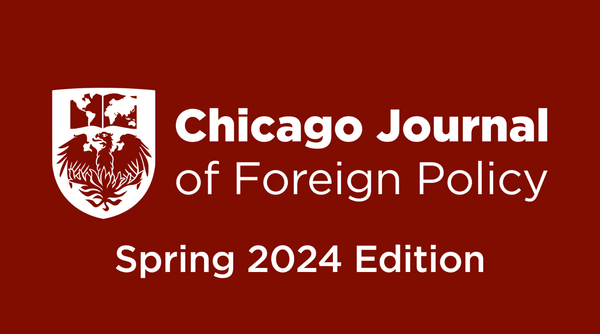Who Decides when Britain Goes to War? The War Prerogative in the United Kingdom

by GWYNETH HOCHHAUSLER, ’20
Traditionally, the British Parliament holds far fewer foreign policy powers than the Prime Minister does.[1] One of the most important of these powers, which the executive has controlled for hundreds of years, is the war prerogative – the power “to declare war and deploy the armed forces”.[2] Some academics have asserted that this power has receded, however, and that Parliament’s 2013 vote against military action in Syria represents a new constitutional convention in British politics requiring the Prime Minister to allow Parliament a substantive vote on military action before it is taken. While the Prime Minister might not be legally bound to respect such a vote, it would be nearly impossible politically not to do so. Such a convention would therefore represent a major normative shift in foreign policy power from the executive to Parliament.[3] Instead, I argue that although the 2013 vote was significant, it was not a clear enough precedent to create such a convention, nor have other precedents consistently supported it enough to establish a new constitutional convention.
Britain has an unwritten constitution composed primarily of Acts of Parliament, court rulings, and conventions, or “the unwritten rules of constitutional practice” that include rules like the existence of the Prime Minister and the fact that parliament must meet at least once a year. [4] Another component of the British constitution is the royal prerogative. Over centuries of British history, many powers that originally belonged to the Crown were eventually taken over by Parliament through convention or parliamentary legislation, but the royal prerogative is the collection of powers that still reside with the Crown. Many of these royal prerogative powers, the war prerogative among them, are now executed by the Prime Minister and their cabinet on behalf of the Crown.[5] So, for hundreds of years, the war prerogative has constitutionally remained in the control of the executive, whether that was the Crown or the Prime Minister. Parliament had no constitutional claim to it.
In practice, parliamentary debate along with both prospective and, more often, retrospective votes have allowed Parliament modest influence over the prerogative.[6] However, especially during the 20th century, that influence gradually shrank as the power of parties increased and the desire of individual MPs to challenge a majority government’s influence decreased. [7] Until 2013, Parliament had never voted against a government’s wishes, and conventional thought held that Parliament was simply a “rubber-stamp” that imparted further legitimacy on the government’s actions.[8] As Richard Heffernan put it in his 2005 Parliamentary Affairs article, Parliament “is weak and reactive: a legislature that chooses never to bite, a tiger muzzled by partisan politics, the willingness of majority party to support its government, even if sometimes unwillingly, in good times and bad”.[9] That the Syria vote was shocking actually illustrates the rarity of such an occurrence. So, at least until 2013, the governing coalition maintained primary control over the war prerogative both constitutionally and in practice.
Any real shift in control of the war prerogative would require a change to the British constitution, either through legislation or convention. While many members of Parliament and the public have called for legislation to codify parliamentary votes on military action before it is taken, the two most recent governments, under Cameron and May, both stated in certain terms that they strongly opposed the creation of such legislation.[10] Thus, a power shift caused by a new constitutional convention seems much more likely to occur. But conventions are difficult to identify and there is no well-defined path through which they come to be. One generally accepted definition comes from the House of Lords Select Committee on the Constitution: a “practice which is politically binding on all involved, but not legally binding”.[11] However, this definition offers no specific requirements or standards that might indicate when a practice become “politically binding”. In 2011, Professor David Jenkins offered to the House of Commons’ Political and Constitutional Reform Committee a description that takes the idea slightly further. He asserted that conventions “derive their constitutional force through consistent and obligatory political observance over a period of time”.[12] Thus, if there was a new constitutional convention requiring a substantive vote, we would expect to see multiple precedents over time, all indicating the prime minister politically had no choice but to allow Parliament a substantive vote.
The 2013 vote on military engagement in Syria at first seems to at least offer one such precedent-setting case in which the Prime Minister was politically obligated to bring the issue to a vote in Parliament. James Strong argues this view, saying the allowing of substantive votes in 2003 and 2011 over military engagement in Iraq and Libya, left Cameron politically “constrained” and forced him to allow and respect a substantive vote on Syria. [13] In doing so, he supposedly “confirmed the political convention that Parliament ultimately decides when Britain goes to war”.[14]
A closer look shows that several other factors probably played a significant role in Cameron’s decision to bring the issue forward for a substantive vote. Juliet Kaarbo and Daniel Kenealy for example, point to miscalculations of both interparty and intraparty factionalism. Assuming they would have support from the Labour Party, the government spent minimal effort trying to sway Liberal-Democrat and Conservative rebels within their own majority coalition. After all, with Labour’s support, the vote would have likely passed easily without backbencher votes. When Labour withdrew its support the morning of the vote, the government scrambled to raise support from the backbenchers they had ignored up to that point, though ultimately, it was too little too late. Kaarbo and Kenealy further point to the “indirect influence of public opinion” and the “spectre of Iraq”, which together forced the issue to take on more salience and result in more Parliamentary interest and influence than typical.[15] The circumstances and decisions that surrounded the Syria vote were exceptional, and it is unclear which factor, if in fact there was only one, played the largest role in Cameron’s decision to allow the substantive vote. It may have been political obligation, but at the least, other factors played significant roles. This particular case therefore provides a shaky ground on which to claim the creation or reinforcement of a new constitutional convention.
The interpretation of the 2013 vote as possible convention-setting is further thrown into question by the lack of consistency in cases that came both before and after 2013. For example, before 2013, the British military was engaged in war in Afghanistan from 2001 to 2014. Parliament never voted to approve this military deployment. Further, even in the case of the Libya vote in 2011, Parliament voted after the government had already decided upon and began the military deployment. After 2013, there have been some cases of Parliament having a substantive vote before military deployment, as with Iraq in 2014 and Syria in 2015, but there have been just as many in which they were not allowed a vote. In 2013 British military assets were deployed to Mali without a vote or debate in Parliament, and in 2018 the British military conducted airstrikes in Syria without the government consulting Parliament even retrospectively.[16] Thus, there is very little consistency over time in how much influence Parliament is able to assert and which mechanisms it uses to do so.
Even those instances in which a substantive vote did occur before the deployment of military forces, in no case other than the 2013 Syria vote was there ever a reasonable chance that Parliament would not support the government. As mentioned above, Parliament’s support is typically just an automatic rubber-stamp on the executive’s decision to deploy the military. To truly identify whether the precedent is politically “obligatory” and “binding” would require cases in which the government did not desire to bring the issue to a vote, but felt politically required to. Excepting Syria in 2013, there has been no instance involving a vote on a matter of war in which the government had a reason to avoid the vote since 2003. Thus, even those precedents offer an uncertain foundation for justification of a new constitutional convention.
The war prerogative in the United Kingdom still belongs to the Prime Minister and their cabinet. A definitive constitutional convention would require greater clarity, consistency and numbers of precedents. The difficulty that Parliament has faced in trying to force this shift, however, has larger implications. If the war prerogative example is indicative, then shifts in foreign policy powers from the Prime Minister to Parliament, no matter how much Parliament desires them, will likely require long and challenging battles. Power over foreign policy has belonged to the executive for centuries, and while it continues to, the executive will be loath to part with it.
Works Cited
[1] Strong, James. “Why Parliament Now Decides on War: Tracing the Growth of the Parliamentary Prerogative through Syria, Libya and Iraq.” The British Journal of Politics and International Relations 17, no. 4 (2015a): 604-22; Kaarbo, Juliet, and Daniel Kenealy. “No, Prime Minister: Explaining the House of Commons’ Vote on Intervention in Syria.” European Security 25, no. 1 (2015): 1-21.
[2] Joseph, Rosara. The War Prerogative: History, Reform, and Constitutional Design. First ed. 2013.
[3] Strong, “Parliament Now Decides”; Strong, “Interpreting the Syria Vote: Parliament and British Foreign Policy.” International Affairs 91, no. 5 (2015b): 1123-139.
[4] Blackburn, Robert. “Britain’s unwritten constitution.” The British Library, 2015. https://www.bl.uk/magna-carta/articles/britains-unwritten-constitution
[5] Bartlett, Gail, and Michael Everett. “The Royal Prerogative.” House of Commons Library Briefing Paper No. 03861. London: House of Commons Library, 2017.
[6] Joseph, War Prerogative.
[7] Ibid.
[8] Kaarbo and Kenealy, “No, Prime Minister.”
[9] Heffernan, Richard. “Why the Prime Minister Cannot Be a President: Comparing Institutional Imperatives in Britain and America.” Parliamentary Affairs 58, no. 1 (2005): 53-70.
[10] Mills, Claire. “Parliamentary approval for military action.” House of Commons Library Briefing Paper CBP 7166. London: House of Commons Library, 2018.
[11] Select Committee on the Constitution. “The pre-emption of Parliament.” HL Paper 165, 13th Report of Session 2012-13. London: The Stationery Office Limited, 2013.
[12] Political and Constitutional Reform Committee. “Parliament’s Role in Conflict Decisions” HC 923, 8th Report of Session 2010-2012. London: The Stationery Office Limited, 2011.
[13] Ibid.
[14] Ibid.
[15] Kaarbo and Kenealy, “No, Prime Minister.”
[16] Mills, “Parliamentary Approval.”
Dicey, A. V. Introduction to the Study of the Law of the Constitution. 10th ed. London and New York: Macmillan/St.Martin’s Press, 1959.
Smith, Michael, Smith, Steve M., and White, Brian. British Foreign Policy: Tradition, Change and Transformation. London: Unwin Hyman, 1988.





